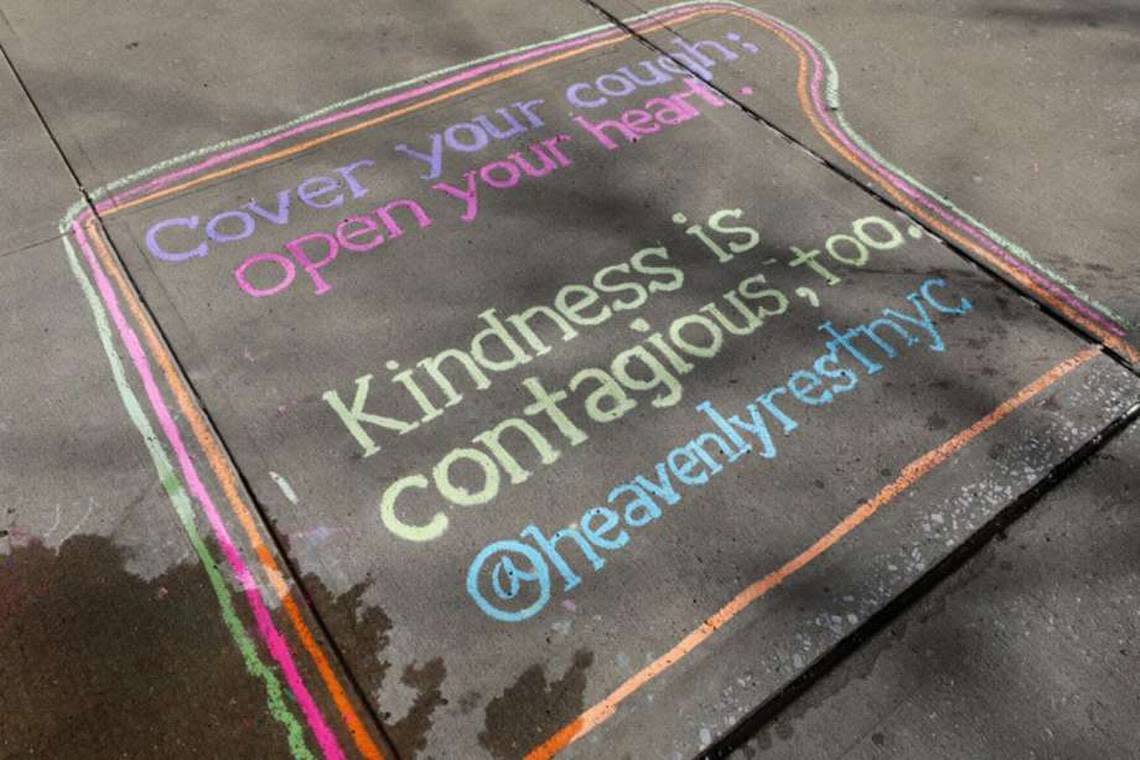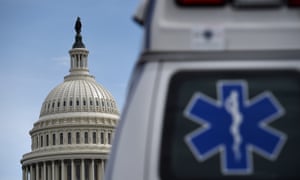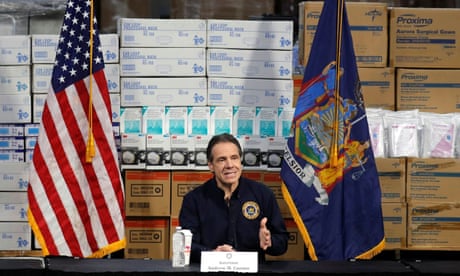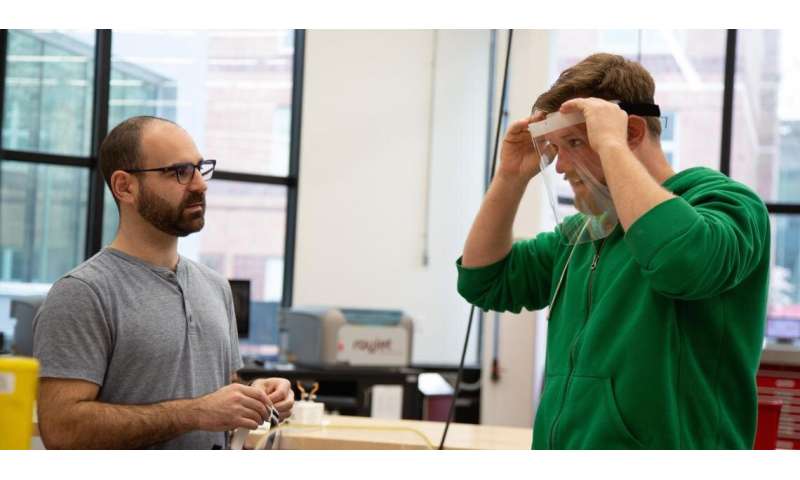From Orban to Kaczynski, Wannabe Autocrats Love the Pandemic
Andreas Kluth,Bloomberg•March 30, 2020
(Bloomberg Opinion) -- Like war, pestilence requires unusual measures, including some that curtail civil liberties. That’s also why aspiring autocrats, throughout history and all over the world, secretly love such emergencies. When, if not now and in the name of public health, is a better time to usurp total power, eliminate opposition and discreetly bury liberty?
Take, for instance, two wannabe dictators in the European Union, which fancies itself a club of law-abiding democracies. One is Viktor Orban, the prime minister of Hungary, a nation that he’s shaped into an “illiberal democracy,” in his own proud words. The other is Jaroslaw Kaczynski, the chairman of the ruling Law & Justice (PiS) party and de facto ruler of Poland. Both are using the Covid-19 pandemic as a flimsy pretext to establish dictatorships in all but name.
This week, Orban had his pliant legislature adopt an “empowerment law” (doesn’t that sound vaguely like an “enabling act”?). It lets Orban rule by decree, and without any time limit whatsoever. Jaw-dropping in its brazenness, the new law also allows Orban to suspend any previous law he doesn’t like and changes the criminal code so that Orban’s government can imprison anybody who in its opinion “distorts” facts. In effect, it’s a silent coup d’etat that leaves Orban’s power completely unchecked. All in the name of fighting the coronavirus, you understand.
Meanwhile in Poland, Kaczynski just rigged the electoral system so that his party’s candidate, incumbent Andrzej Duda, is sure to remain president in the election slated for May 10. That ballot shouldn’t be taking place in the first place: Poland is in lockdown, which prevents the opposition from campaigning, whereas Duda still travels the country and appears on PiS-controlled TV.
But Kaczynski wants the vote to happen, and also wants to know the outcome already. So, between 2am and 4:20am on Saturday morning, in a largely empty parliament where PiS has the absolute majority, he suddenly introduced 79 pages of amendments into an emergency law ostensibly targeted at the coronavirus. The changes, which alter the election rules to favour PiS, violate parliamentary rules and the constitution. Jerzy Stepien, a former president of Poland’s constitutional tribunal, called the move another step toward a “dictatorship in Poland.”
The EU could and should punish Hungary and Poland, but that would take unanimity, and Orban and Kaczynski, along with a few of their eastern European pals, have each other’s backs. So the only remaining checks on the two leaders would in theory be their own countries’ courts. Conveniently, however, both have spent years stacking them with loyalists. With their new powers, they’ll be able to make their judiciaries fully beholden to them.
Poland and Hungary are in a sense providing a user manual for creeping autocratic takeovers, and lots of eager students are paying attention. Israeli prime minister Benjamin Netanyahu has just staged his own sort of “coronavirus coup.” Cambodian prime minister Hun Sen has arrested opposition critics in the name of cracking down on fake news over the coronavirus. From India to Russia and Brazil, leaders seem quite enthusiastic about all sorts of drastic emergency measures that just happen to eliminate political nuisances. China’s Xi Jinping already has, of course; but he at least never pretended to be a democrat.
None of this is really new. Epidemics have put freedom-loving societies to the test at least since the plague struck Periclean Athens in 430 BCE. The difference is that today the tools of epidemiology are also potentially perfect instruments of totalitarianism. From China to Singapore and the West, governments are using or deploying artificial intelligence, facial recognition and social-contact analysis to trace the viral pathways. These same technologies can also turn into permanent surveillance for other purposes.
But who wants to seem “unpatriotic” right now, or to put lives at risk by saying no to containment efforts as the bodies mount? And yet, we must insist on limits if we treasure our liberties. At some point, this pandemic will recede. And when it does, the extraordinary measures to contain it must end as well. Otherwise, we will have survived one hell only to enter another.
This column does not necessarily reflect the opinion of Bloomberg LP and its
After a month of increasing anxiety and self-isolation due to the coronavirus pandemic, audiences in the U.S. are largely not eager to return to public events once the crisis subsides, according to a new study.
In a survey of 1,000 consumers in the U.S., 44% of respondents said they would attend fewer large public events, even once they are cleared by the CDC, with 38% saying they’d attend about the same number, and 18% saying they’d attend more. And 47% agreed that the idea of going to a major public event “will scare me for a long time.”
The study was published by Performance Research, a sports and events research firm, in partnership with Full Circle Research Co.
The news for movie theaters was particularly grim, with 49% of respondents saying it would take a few months to never for them to return, and 28% saying that they will attend movie theaters less often once they’re safe. While 15% of respondents said they plan on going to the movies more often post-pandemic (and 58% said their attendance won’t change), the net effect suggests an alarming erosion of theatrical returns that theater exhibitors and studios alike can ill afford.
Major indoor concert venues, indoor sports venues, and — of significant interest to the Walt Disney Company — theme parks appear to be the hardest hit by the pandemic, with 56%, 51% and 50% of respondents respectively saying it would take anywhere from a few months to possibly never for them to return, even after they’ve been deemed safe. A third of respondents further said they plan to attend indoor sports venues and indoor concert venues less often after the COVID-19 epidemic has subsided.
Outdoor parks and beaches, outdoor sports venues, and zoos and aquariums appear to be the least affected, with 64%, 56%, and 55% of respondents respectively saying they would return right away or within a few weeks.
Even for those who do say they will return to public venues, however, the possibility of catching a pathogen will be front of mind: Two-thirds of respondents said their concern over the cleanliness and sanitation of venues and restrooms will be higher than prior to the pandemic; 65% stated concern for the cleanliness of food service areas; and 59% said they will be concerned about crowds and their general proximity to strangers.
The news isn’t entirely bad, however: 46% said they will value going to public events more than they did before, and 53% reported a “pent-up desire to attend the events I love” once the pandemic is over.
A vast majority of respondents — 66% — said the decision by major sports organizations to suspend public events was “about right.”
The study, which has a margin of error of 3%, drew from consumers in Full Circle’s research panel, who were surveyed between March 23 to 26 — when the number of confirmed COVID-19 cases in the U.S. nearly doubled from 43,667 to 83,836. The number of confirmed U.S. cases currently stands at over 184,000, as of Tuesday afternoon.
Todd Spangler contributed to this report.










 Cision
Cision





